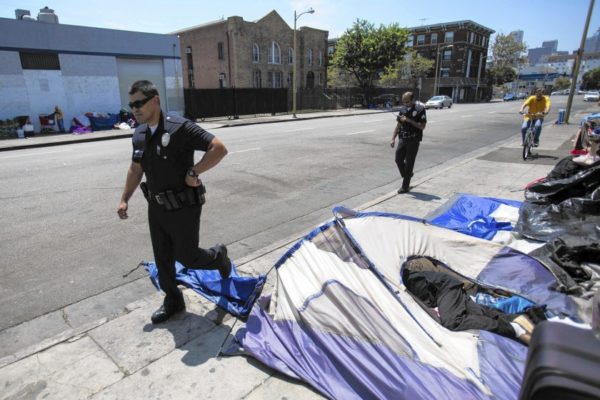President Donald Trump plans to declare a national emergency Friday to allow more direct relief to Americans affected by the coronavirus, two administration officials told NBC News.
The move could help open up tens of billions of dollars to help fight the rapidly spreading pandemic.
Trump announced earlier in the day that he will hold a press conference Friday afternoon.
“I will be having a news conference today at 3:00 P.M., The White House. Topic: CoronaVirus!” he tweeted.
Trump had hinted Thursday that he was strongly considering taking emergency action, telling reporters in the Oval Office that he was thinking of invoking the Stafford Act to declare a national emergency.
“We have very strong emergency powers under the Stafford Act,” the president said during a bilateral meeting with the Irish prime minister. “I have it memorized, practically, as to the powers in that act. And if I need to do something, I’ll do it. I have the right to do a lot of things that people don’t even know about.”
Plans for the emergency declaration were first reported by Bloomberg News.
Download the NBC News app for full coverage of the coronavirus outbreak
Under the Stafford Act, an “infectious disease emergency declaration” by the president would allow the Federal Emergency Management Agency to provide disaster relief funding to state and local governments, as well as federal assistance to support the coronavirus response. The law allows the agency to circumvent legal barriers to more quickly distribute such aid.
Emergency declarations are most often used in the event of natural disasters, but can also be applied to disease outbreaks.
The president’s tweet about the Friday press conference came amid the rapid spread of the virus and as the White House has scrambled to craft a strategy to shift Trump’s response to the outbreak, which had been focused on downplaying the threat and accusing the media of creating undue concern.
Trump has come under increasing fire in recent weeks over his response to the outbreak while his administration weathered criticism for the lack of coronavirus testing being done compared with other countries.
In addition to having insisted for weeks that he had the outbreak under control, Trump has also propagated personal beliefs about the coronavirus that contradict those of veteran health officials and experts.
As panic began to set in over the outbreak, Trump tried to quell the fears of Americans across the country by giving a speech from the Oval Office on Wednesday night. He announced that he would ban many foreign travelers from Europe for the next 30 days and offered a series of economic relief actions to help workers and companies deal with the outbreak. But his speech was met with swift pushback after he misstated several aspects of the policy and failed to propose any new action to combat the outbreak domestically.
Health officials in recent days have sounded the alarm, warning the public that the outbreak is likely to get worse. Many major public events, including all NBA, NHL, MLB and Major League Soccer preseason games and Broadway shows, have been canceled this week, and Thursday saw the Dow’s worst day since the 1987 crash.
Wall Street, however, rallied Friday, bouncing firmly back after lawmakers and the White House appeared close to finalizing an economic relief package to address the coronavirus pandemic.

 Peter Alexander
Peter Alexander Kristen Welker
Kristen Welker
